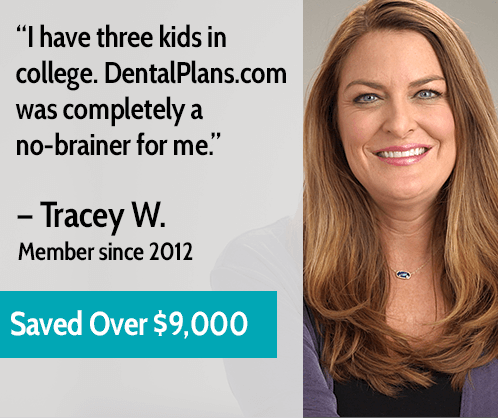“The greatest wealth is health.” – Virgil
When it comes to finding peace of mind, protecting your health, and ensuring financial stability, health insurance plays a crucial role, especially for freelancers. In today’s increasingly uncertain landscape, having the right coverage can improve health outcomes and safeguard your finances against unexpected medical expenses. For individuals under 65 years old—especially freelancers, small business owners, and independent contractors—understanding your health insurance options is essential for both your well-being and your bottom line.
Consulting with a licensed health insurance expert is not just wise; it can save you time and money while helping you avoid costly mistakes. The complexities of various health insurance plans can be overwhelming, and having a knowledgeable professional at your side makes a world of difference. Take action now by filling out the form below to explore your best options:

Marketplace Health Insurance Options
Understanding the ACA Marketplace
The Affordable Care Act (ACA) marketplace provides a platform for individuals and families to purchase health insurance coverage. Plans in the marketplace come with specific benefits that meet federal standards and include preventive services at no additional cost. Premiums for marketplace plans can vary based on factors like age, location, and household size, with the potential for subsidies based on income. The options available are divided into four metal tiers: Bronze, Silver, Gold, and Platinum. Each tier offers different levels of coverage, with varying premiums and out-of-pocket costs.
Eligibility and Enrollment Periods
Eligibility for marketplace plans generally requires individuals to be U.S. citizens or legal residents and to not have access to affordable health insurance through an employer. Enrollment typically occurs during the annual Open Enrollment Period, but qualifying life events such as moving, marriage, or loss of other coverage can open Special Enrollment Periods. It is crucial to review available plans every year, as prices and coverages can change, potentially affecting your choices and budget.

Private Health Insurance Options
Benefits and Drawbacks of Private Insurance
Private health insurance offers flexibility and control over coverage options compared to the ACA marketplace. Freelancers may find plans that meet their unique needs and potentially provide wider networks of healthcare providers. However, private insurance can often be more expensive, with premiums not usually eligible for federal subsidies. It’s essential to weigh the benefits of personalized coverage against the additional costs to find a plan that aligns well with your health demands and financial situation.
Finding the Right Private Insurer
To find the right private insurance provider, freelancers can begin by researching online or consulting insurance brokers. Sites that allow comparisons of coverage, prices, and customer reviews are useful when evaluating your options. Each private insurer will have different plans, benefits, and provider networks. Additionally, consider contacting insurers directly for personalized quotes tailored to your health requirements and budget.
Get a hussle-free consultation
Factors Influencing Health Insurance Costs
The Components of Premiums and Deductibles
When evaluating health insurance plans, understanding premiums and deductibles is vital. Premiums are the monthly amounts one pays for coverage, while deductibles are the out-of-pocket expenses you must incur before your insurance begins to pay. Different types of deductibles exist, such as individual and family deductibles—both of which can significantly influence overall costs over time. Additionally, plans with lower premiums typically have higher deductibles and vice versa, so it’s critical to balance monthly affordability against potential medical expenses.
Out-of-Pocket Expenses and Maximums
Out-of-pocket expenses include copayments, coinsurance, and deductibles. Each plan has an out-of-pocket maximum—the most you would pay in a year for covered services. Once you hit this limit, your plan pays 100% of covered services. It’s important to review your expected health care needs against these costs so that financial surprises in high-usage years are minimized. Consider both your immediate healthcare needs and long-term health trends when choosing your plan.

Demographics and Health Insurance Needs
Insurance for Families and Individuals
Choosing the right health insurance varies among different demographics. For families, it’s essential to find plans that provide comprehensive coverage, including preventive care, pediatric services, and maternity benefits. Individual freelancers may opt for more basic plans that suit their personal health needs. Understanding the healthcare requirements of each demographic is vital when selecting a plan that provides both coverage and affordability, allowing families and individuals to maintain their health without financial strain.
Insurance for Self-Employed Professionals
Self-employed professionals and freelancers often encounter unique challenges when searching for health insurance, particularly regarding income fluctuations and varying health requirements. It is crucial for these workers to explore options that balance premium costs with considerable coverage, especially for specialized services like mental health and rehabilitation. Innovative plans designed specifically for self-employed individuals may provide advantages in network flexibility and reduced wait times, making it imperative to evaluate these options thoroughly.

Pre-Existing Conditions and Health Coverage
The Impact of Pre-Existing Conditions
In today’s landscape, health insurance coverage must address the realities of pre-existing conditions, thanks to the protections under the ACA. Individuals and families with pre-existing conditions cannot be denied coverage or charged higher premiums based on their health history. However, some private plans can still impose waiting periods for coverage on pre-existing conditions, thus making ACA marketplace options more favorable for individuals in such circumstances. It’s paramount to be aware of plan specifics and potential limitations.
Understanding Provider Networks
Every health insurance plan comes with a network of providers, and understanding these networks is crucial in determining out-of-pocket costs and accessing care. Marketplace plans typically offer different network types, including HMO, PPO, and EPO, each with its own rules for seeing specialists and out-of-network providers. Private insurance also contains these considerations but often offers a broader network. Evaluating network constraints can be critical to ensuring timely access to necessary medical services.
In summary, having a solid grasp of affordable health insurance options is vital for freelancers, small business owners, and independent contractors. Whether choosing ACA marketplace plans or private insurance, understanding premiums, deductibles, and out-of-pocket expenses will help individuals make informed decisions about their health coverage.
If you need immediate assistance or have questions about your health insurance options, please call or text (407) 588-0505.
FAQs
1. What is the difference between ACA marketplace plans and private insurance?
ACA marketplace plans are federally regulated and provide standard benefits while offering potential subsidies. Private insurance often provides customized options but lacks these subsidies.
2. How do premiums for freelancers compare to those working for companies?
Freelancers often face higher premiums since employers typically subsidize costs for employees. Freelancers must budget accordingly for their insurance premiums.
3. Can I get insurance regardless of my pre-existing condition?
Yes, ACA marketplace plans cannot deny coverage due to pre-existing conditions. However, some private insurance might impose waiting periods.
4. What factors should I consider when evaluating a health insurance plan?
Consider premiums, deductibles, out-of-pocket expenses, coverage options, provider networks, and your expected healthcare needs when evaluating a plan.
5. What is a deductible, and how does it impact my health insurance costs?
A deductible is the amount you pay for covered healthcare services before your insurance kicks in, directly impacting your overall healthcare expenditures.







0 Comments